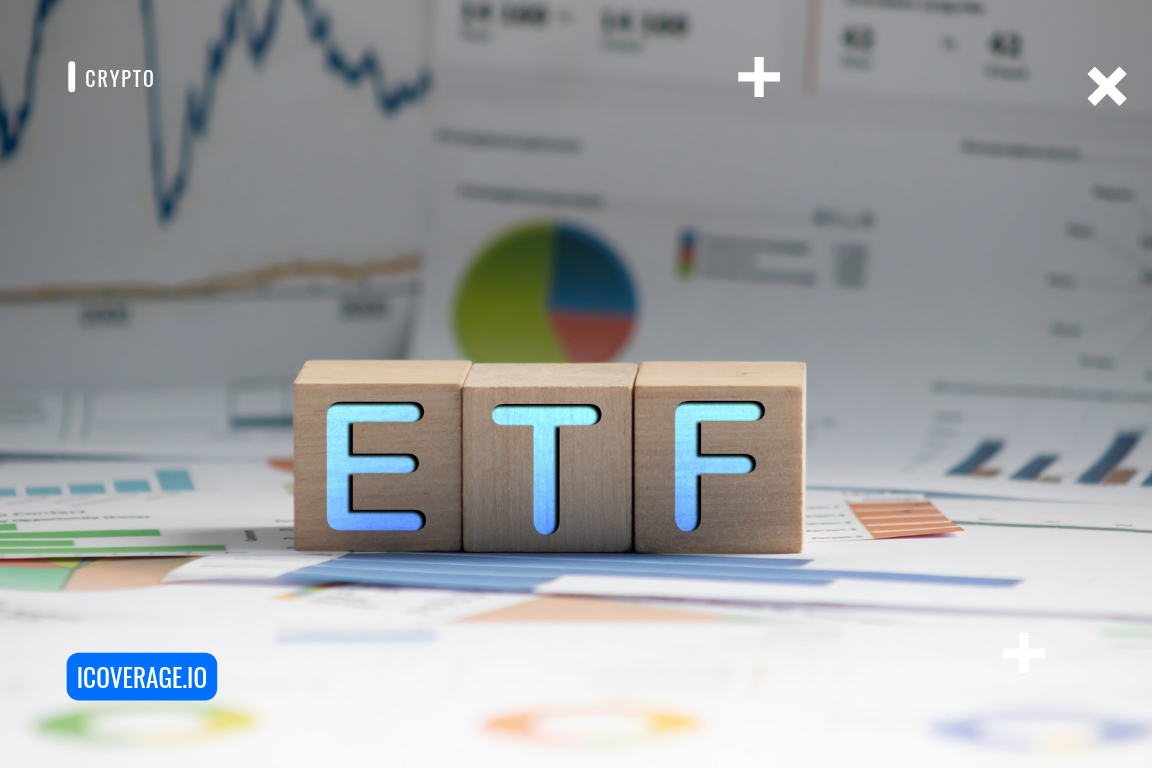What Is ETF Staking? Here's Everything You Need To Know
By Reel Coverage May 07, 2025

ETF staking is a process whereby crypto Exchange Traded Funds (ETFs) issuers lock up crypto assets under their management in a smart contract in order to earn yield or staking rewards.
When traditional investors buy crypto ETFs, the issuers purchase the underlying asset for custodianship, thereby offering their ETF investors a regulated exposure to the price movements of the crypto assets tracked by said ETFs.
ETF staking allows these investment firms to generate extra income for their ETF investors while maintaining exposure to the price performance of the underlying crypto assets.
Understanding Cryptocurrency ETFs
Cryptocurrency Exchange Traded Funds (ETFs) are traditional investment products that affords investors the exposure to a variety of cryptocurrencies' price performance while eliminating the need to directly own and manage said digital assets.
Similar to traditional ETFs, cryptocurrency ETFs are traded on stock exchanges, allowing conventional investors to conveniently tap into the emerging digital assets markets through standard brokerage accounts, avoiding the risks of storing private keys or exchange hacks.
As a regulated investment product, cryptocurrency ETFs offer a layer of investor protection while also enabling easier compliance with local laws for investors.
With each capital inflow, cryptocurrency ETF issuers buy and custody the underlying cryptocurrency tracked by the purchased ETF. The value of the traded ETF is expected to grow as the underlying cryptocurrency appreciates in value. A 100% custody of digital assets tracked by these funds ensures that ETFs are backed and that its value can be redeemed by investors at any time.
How Crypto ETF Staking Works
There are primarily two types of cryptocurrency ETFs: Spot ETFs and Futures-based ETFs.
Spot ETFs track the value of spot markets of the underlying crypto assets while the Futures-based ETFs track the derivatives market value, more commonly known as the perpetual futures market.
That being said, ETF staking is unique to spot ETFs given that issuers directly buy and hold the tracked cryptocurrency whereas futures-based ETFs enter into futures contracts that don't involve direct ownership of the crypto assets being speculated on.
Spot ETFs issuers, depending on the ecosystem options available to the underlying cryptocurrencies, can stake a portion of their holdings, if authorized by appropriate regulatory bodies, to earn extra income through on-chain yield solutions.
For instance, Ethereum's ETH can be staked to validator nodes to earn varying yields. A spot ETH ETF issuer can stake its ETH holdings to vetted validators to attain a consistent income flow for its ETF investors.
Several traditional investment firms have filed for spot ETH ETFs with signaled interest for staking provisions. 21shares, Grayscale Investments, Blackrock, VanEck and Fidelity, to name a few, all signaled interest for staking provisions for ETH managed by their funds in their initial ETF filings.
As of May, 2025, most of these firms have withdrawn staking from their filing while awaiting the Securities and Exchange Commission (SEC) of the United State's decision on rule changes to ETH ETFs that authorizes staking.
Beyond spot ETH ETFs, firms like VanEck have filed for a spot BNB ETF with staking feature for US investors. If approved, this would serve as a greenlight for staking authorization for ETF issuers, potentially leading to widespread implementations that could attract fresh capital to the cryptocurrency markets.
With each cryptocurrency functioning with unique rules and essentially varying staking and yield solutions, crypto ETF issuers will have to employ various strategies to maximize yield and security of assets.
ETF staking, unique to cryptocurrency exchange traded funds, allows traditional investment firms to offer yield-bearing investment products to conventional investors while also affording price performance exposure of emerging digital assets markets and is expected to serve as a catalyst for increased investments into crypto assets and networks.






.gif?ts=1752085246)

